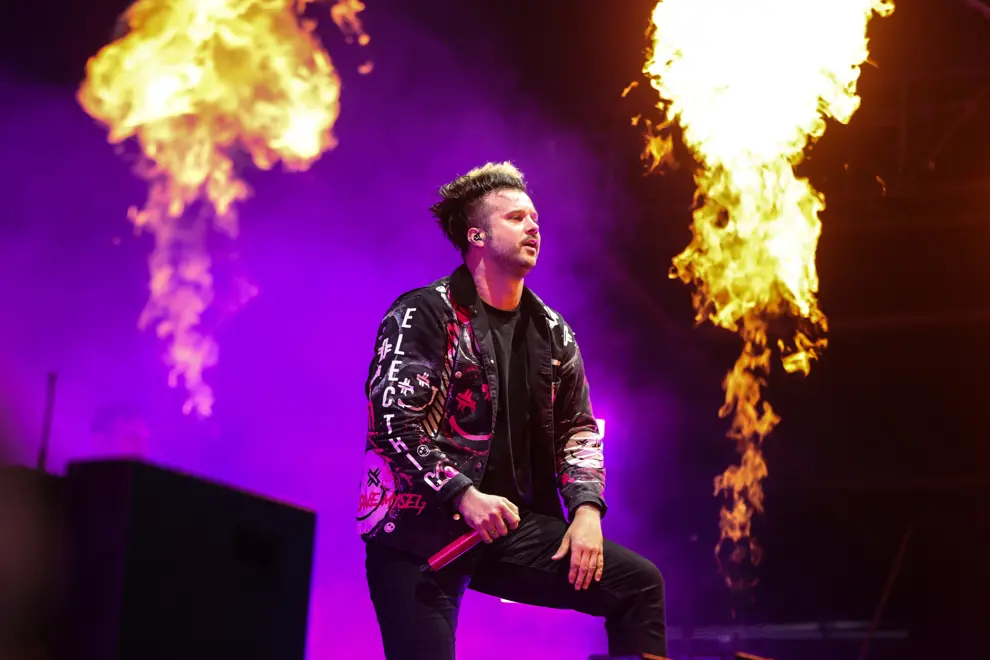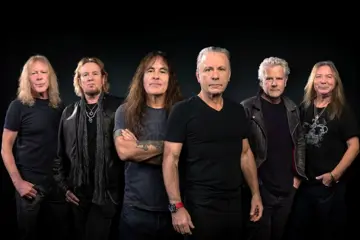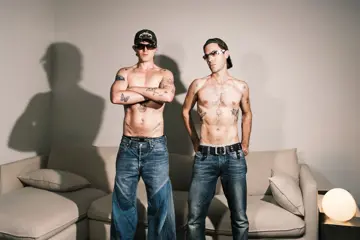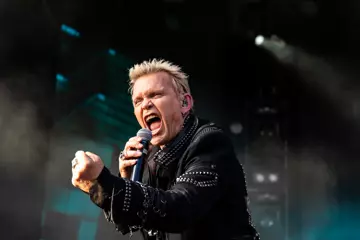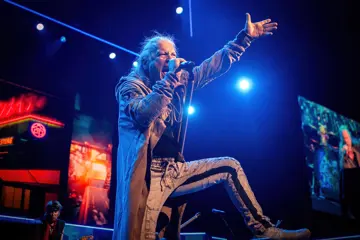With the landscape of festivals changing and Gen Z and its own satchel of priorities taking a leading role, we’re still working out where such events will land.
The industry is divided on how effective they are in breaking new acts.
London-based One Fiinix Live agent Jon Ollier told IQ magazine, “I’ve never been of the belief that a whole lot of music discovery goes on at festivals. As soon as festivals got beyond two or three stages, the idea that you have a captive audience isn’t really true.”
Runway Artists founder Matt Hanner – whose international roster includes Australian acts Coldwave, Fanny Lumsden and Gabriella Cilmi – was equally sceptical.
“We’ve seen a lot of artists rise up that are playing to huge numbers of people now – thousands of people a night – but are not festival staples,” he argued. “So many of those artists can say they’ve developed a great audience without the help of festivals, so it’s hard to make the argument that festivals are intrinsic to breaking artists.”
Don't miss a beat with our FREE daily newsletter
However, two of Australia’s biggest independent festival and tour promoters, Destroy All Lines and Untitled Group, cite enough examples of breakthroughs.
“One hundred per cent!” responds Destroy All Lines General Manager Chris O’Brien when TheMusic.com.au poses the question.
Both promoters source new acts from different places. They have genre-focussed teams who keep their ears on the ground, trawl through streaming playlists to find the latest sounds, and go out in the clubs to check out what’s trending.
The strength of their bills and the size of their crowds have given the promoters and their festivals a global reputation, and they are championed by influential overseas magazines such as Pollstar, Billboard and IQ.
As a result, both companies are approached by overseas managers and promoters. Usually, festival bills are locked in 12 months before, so it’s up to the teams to know who’s trending.
Good Things
In December 2024, Destroy All Lines’ Good Things attracted 100,000 punters. Knotfest is returning to Melbourne’s Flemington Racecourse (February 28), Brisbane Showgrounds (March 2) and Sydney’s Centennial Park (March 8). During its 2024 run, it was drawing around 25,000 in each city.
In 2022, German metal band Electric Callboy, who had only released a couple of singles, played Good Things. “They were 14th on the bill that year,” recounts O’Brien. “They came to the festival when they were starting to break. When the festival hit, they hit really hard. They connected with Australian crowds in a way I had not seen for a long time.
“It was perfect timing for them, and you could argue that Australia is probably their biggest market now. They are a perfect example of how festivals can break bands. It was one massive party. Within the space of three years, they're now playing arenas.”
Similarly, Falling In Reverse made their debut in 2019 and are now doing three arena dates in 2025 between March 14 and 15. Sabaton and Ice Nine Kills, who came as relative unknowns three years ago, have now upgraded to 5,500-seat rooms.
Untitled
Over at Untitled Group, Programming & Operations Manager Michelle Webb states: “I am a firm believer that festivals are a core ingredient in what it takes to break an act.
“But I don’t think there’s a singular part of the process. Festivals are incredibly important, but so is strategic music roll-out, social media presence, and doing content with publications that have really large platforms.
“It all feeds into one another, and I don’t think any one element can be held responsible for breaking an act.”
Untitled Group had a record 2024 selling 630,000 tickets to tours and events, up from 500,000 the year before. Among two of its festivals were its flagship Beyond The Valley, outside Melbourne, which hit 35,000 capacity, while 85,000 fans flocked across Brisbane, Perth and Adelaide for its one-day Wildlands event.
There were plenty of acts to choose from. The addition of stages at Beyond The Valley meant 200 acts were on board, while the Wildlands shows had between 50 and 80.
Two significant breakouts at Untitled’s two festivals this summer were British singer-songwriter Lola Young and Australian DJ/producer Sam Alfred.
When Untitled locked in Young, she was still relatively unknown outside the UK. “But she was so good that it was something we would back,” Webb explains. “She has absolutely blown up in the past six months on a global level. That booking was a massive win in terms of the timing.”
Untitled’s gamble on the 23-year-old south Londoner paid off. It’s not known who her streaming audiences are. But based on her Australian live appearances, they are mostly female fans aged 18 to 24.
Webb adds, “You could tell who her die-hard fans were; they knew every single song off her album, which was really fun and exciting to see. She was born to perform, a strong singer and performer, with an intangible factor which she brings to the stage, and I could certainly see why she was so successful.”
Two theatre sideshows in Melbourne and Sydney sold out, and after she left the country, she went to #1 on the ARIA chart with Messy and rated well in the triple j Hottest 100.
Egypt-born, Sudanese-Australian EDM bright light Sam Alfred hit the festivals with gusto on the back of a European tour with his jazz-tipped house, deep cuts and UK garage, finding an audience in the middle of a ‘90s retro boom.
His slamming sets drew a large and diverse segment of the crowds, and the BTV appearance was complemented with a secret mid-afternoon set, which made him a talking point.
His four-date headliner tour in autumn saw his March 29 show at Melbourne’s The Timber Yard and April 6 appearance at Sydney’s Liberty Hall Courts sell out in hours.
“We’ve worked with him a long time, and being part of his trajectory has been exciting to watch,” Webb says. “2025 is going to be a strong year for him.”
How do festivals whip up excitement for a young act without alienating the 18—24 age group? O’Brien says that part of Destroy All Lines’ marketing is to ensure that each act slams up their appearance also through their own social networks “so they’re talking directly to the fans.”
For Webb, “Gen Z is really intelligent. It can sniff out if something is not authentic. It can tell the difference between an artist being in the moment and the industry flogging the ‘next big thing’. We at Untitled Group treat our audience that they are as intelligent as they are.”
Next Step
Festivals are often seen as the next step for an artist, even by Australian artist managers and agents who are reluctant to acknowledge that these events can break acts.
But they see what a young act can achieve, even as fees for small and medium tiers, have gone into freefall as production and operational costs jump four-fold.
They say it’s a place where young acts can create a cultural identity for themselves by appearing at festivals that match their own brands and where industry tastemakers expect to see them.
“A festival set doesn’t just give you stage experience but make instant returns on socials, downloads and physicals,” says veteran manager and promoter Alan Evers-Buckland.
For left-of-centre Melbourne singer-songwriter Abbey Stone, he steered her from clubs to theatres through opening sets for John Farnham, Richard Marx, Marcia Hines, Daryl Braithwaite and 10CC.
These built her up to festivals such as Red Hot Summer Tour and By The Bay.
“Festivals give extended promotion over a long period of time, which a young act just can’t afford,” Evers-Buckland points out.
“At one of these, the promoter was so knocked out by Abbey’s performance that he doubled her fee immediately after.
“It also brought her to the attention of influential booking agents like Frank Stivala of Premier Artists and (tour promoter) Duane McDonald. An overseas producer was impressed enough to get her in the studio.
“That’s why it’s just so important for the Federal Government to put money into festivals, to keep them alive and breaking acts.”
Right Said Fred
The best example of a debut act becoming an overnight phenomenon was, of course, Fred again... After a stunning set at Laneway 2023, he sold out headliner dates, with his signature pop-up sets swallowed up in five seconds and one at Sydney’s 5,500-capacity Hordern Pavilion. It was a testament to timing as much as the excitement of his shows.
When he returned the year after, where 1 million fans waited in a virtual queue for tickets, and 100,000 of these for initially advertised shows were snapped up in "a matter of hours". In total, he shifted 220,000 tickets on that visit, according to Handsome Tours.
Among his many surprise shows were at the Sydney Opera House’s Concert Hall. Over 145,000 fans leapt for 3,000 seats, setting a new record for the venue.
Through The Years
Through the years, Big Day Out, which at its peak drew 255,000, could claim to break Soundgarden, Björk and Smashing Pumpkins, among others, in Australia.
Ben Harper and Jack Johnson broke virtually overnight because of Bluesfest Byron Bay. Harper considered his first appearance there to have such an impact that to this day, he remembers everything about it vividly, “including the vibe and energy of the site and the Byron town, and how everyone backstage was so loving.”
Splendour In The Grass can arguably take credit for the Australian breakthroughs of Florence And The Machine, Gang Of Youths, Kendrick Lamar, The National, and Foals.
Sugar Bones of Confidence Man admits that their 2017 debut at Splendour was a game-changer. After their appearance, the festival put a live clip of their Boyfriend showcasing that colourful, fun show, with the tag asking, “Best Up-And-Coming Live Band in Australia?” It went viral.
“We didn’t realise it at the time, but that small moment gave us a whole lot more attention from everyone in Australia.”
Last year, Confidence Man’s four sets at Glastonbury gave them a global boost.
Coldplay were a band that boosted their international rise with festival appearances, going out of their way in some cases. In 2011, they flew from Japan to Australia just to do Splendour and then flew out again after a stunning show.
On their last Australian visit last year, they had built up to selling an estimated 600,000 tickets.
The British band first played Glastonbury in 1999 (almost missing their timeslot because of a drunken tour manager that swerved them all through the fields as they clung to their guitars, according to Chris Martin) and then were one of its headliners in 2002, 2005, 2011, 2016 and 2024.
Last year, Martin spoke about how festivals and the band were essential to each others’ consciousness, tapping into why rock fans still head to them.
“Maybe that’s because of the land and that’s where I grew up around. That’s the idea of this Pyramid (they played the Pyramid Stage last year) that’s also really connected to the earth. It’s the meeting of these two worlds, which I love.
“Sometimes I go and climb the Pyramid and sit up there to think. Often if we’re going to play that summer, it’s sort of a very true place, as a frontman I can feel what is right and wrong, at least for us.
“There’s just a feeling of the land being magical. The vibe being magical. There’s something for everybody.”

